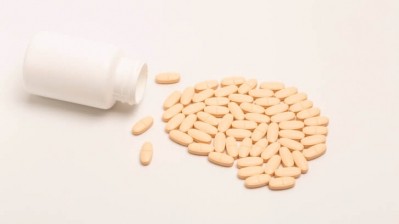Synbiotic more effective for weight management over probiotic alone, study suggests

Furthermore, the researchers note marked reductions in triglyceride levels by week eight of the intervention, as well as significant increases of bifidobacterial in the faecal samples.
The Japanese researchers conclude: “The results suggest that the combined intake of GCL2505 and inulin suppresses the accumulation of visceral fat more compared with the intake of GCL2505 alone.
“In terms of preventing the development of metabolic abnormalities, reducing visceral fat is relatively more important than weight or body fat. It is thought that the combined intake of GCL2505 and inulin, which are functional food components that can be easily applied to daily life, may help to prevent the development of metabolic abnormalities in overweight adults,” they add, emphasising the signficance of the findings.
Obesity prevalence
With the prevalence of obesity almost tripling between the years of 1975 and 2016, those now at increased risk of developing associated lifestyle diseases such as hypertension, dyslipidaemia, and diabetes, as well as noncommunicable diseases, has vastly increased.
Thus, there is an increased need for natural and effective lifestyle solutions to the modern-day obesity epidemic. Evidence has established a significant link between the gut microbiota and obesity, and thus, there has been a strong interest in biotics for the treatment of overweight and obesity.
Previous studies investigating probiotics containing lactic acid bacteria and Bifidobacterium have noted significant reductions in body weight, body fat percentage, and waist circumference. In addition, multiple meta-analyses have shown the effectiveness of prebiotics in reducing body weight, BMI, fasting glucose, and fasting triglyceride levels.
Yet, following limitations in the use of single strains of probiotics, it has been noted that synbiotics may act synergistically against obesity through increasing bacterial growth. Following previous research demonstrating the benefits to weight management of the probiotic strain Bifidobacterium animalis subsp. Lactis, the researchers sought to further investigate its effectiveness when paired with inulin as a synbiotic to reduce abdominal fat.
Study
The researchers conducted a placebo-controlled, randomised, double-blind study in 120 Japanese men and women between the ages of 20 and 65. Participants in the experimental group consumed a test beverage containing 1 x 1010 CFU/100g of the GCL2505 Bifidobacterium animalis subsp. Lactis combined with 2g/100g of inulin over a period of 12-weeks. The control group received a matched placebo drink.
It was observed that participants receiving the synbiotic had marked reductions in visceral fat area (VFA) and total fat area. The total number of bifidobacteria was also noted to be significantly increased following faecal analysis, when compared to the placebo group.
Furthermore, triglyceride levels were reported to be significantly lower in the synbiotic group compared to the control, as well as body weight, BMI, total cholesterol, LDL-C and HDL-C levels at week eight.
Explained
The researchers conclude that the findings suggest that the combined intake of the GCL2505 probiotic with inulin may reduce visceral fat and body fat through the increased total bifidobacterial count.
The researchers explain the effect: “It is hypothesized that intake of GCL2505 and inulin reduced visceral and body fat through a mechanism involving two steps. In the first step, intake of GCL2505 and inulin increases bifidobacteria and production of short-chain fatty acids (SCFAs) in the gut.
“In the second step, the increase in SCFAs in the gut improved glucose tolerance and systemic fatty acid oxidation through their receptor, G protein-coupled receptor 43 (GPR43), leading to a reduction in visceral and body fat,” they assert.
Source: Nutrients
https://doi.org/10.3390/nu15245025
“Effect of Continuous Ingestion of Bifidobacteria and Inulin on Reducing Body Fat: A Randomized, Double-Blind, Placebo-Controlled, Parallel-Group Comparison Study”
Yuhei Baba, Yasuo Saito, Mei Kadowaki, Naoki Azuma and Daisuke Tsuge














